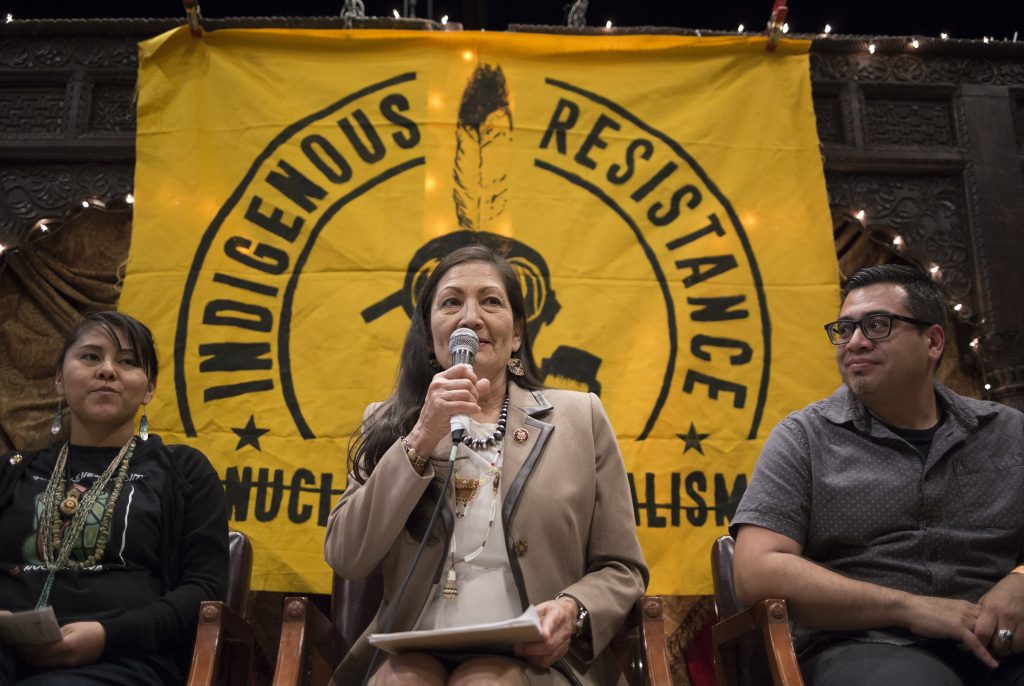National Investigation of Native American Boarding Schools Hits Home in Michigan
Indigenous journalists Antonia Gonzales and Sierra Clark say there must be an acknowledgement and apology for the trauma inflicted on Native communities through residential schools.

After the continued discovery of mass unmarked graves at several Canadian indigenous boarding schools, U.S. Secretary of the Interior Deb Haaland announced she will launch the Federal Indian Boarding School Initiative.
“Looking at just some of the issues that tribal communities face, it’s definitely an issue of intergenerational trauma.”–Antonia Gonzales, National Native News
This initiative will investigate the federally funded U.S. institutions where Native children were abused and stripped of their culture, including the three residential schools here in Michigan.
Listen: The movement to uncover the recent history of Michigan’s Native American boarding schools.
Guests
Antonia Gonzales anchors National Native News, a nationwide public radio program that focuses on Indigenous issues. She says the general public may not know the history of these boarding schools, but for Indigenous communities, the history manifests in living memory. “Looking at just some of the issues that tribal communities face, it’s definitely an issue of intergenerational trauma,” she says. With many former students still living, Gonzales says most Native people have close connections to the abuse inflicted by residential schools. “In Alaska I’ve interviewed students who were called numbers, they didn’t even have names,” she says. “That’s really one of the very traumatic events that happened to our people, our families.”
The Biden administration’s investigation of U.S. residential schools is a signal of change, says Gonzales. “It goes to show that … representation matters. Having an Indigenous person [Interior Secretary Deb Haaland] in the administration … is finally bringing to light what [Indigenous people] have been calling for for years.” Gonzales says this federal acknowledgement is welcome, but long overdue. “Some of the former students that I’ve talked to … are hopeful. They say it’s a sign of relief just for someone in the federal government to be supporting what they’ve been advocating for years.”
Sierra Clark is an Indigenous affairs reporter for the Traverse City Record Eagle. She says tribes in Michigan “are calling for an open investigation not only on the [former boarding school] property, but they’re calling on the records to be opened.” Clark says Native communities are hoping a federal investigation will force Michigan to be transparent with the documentation of the state’s three federally funded boarding schools. “The state has not been open historically. Tribes have had to do their own investigations … they’ve come to a dead end.”
The abuse and trauma of Michigan’s residential schools can’t be overlooked as ancient history, says Clark. “This is a living history. This isn’t something that happened in the past. We have people alive today who experienced these schools. In Michigan, the last boarding school to close … was in 1983.” Though painful, she says uncovering this history is necessary. “We need the community to heal, and in order to heal, we need to take that first step.”
Trusted, accurate, up-to-date
WDET is here to keep you informed on essential information, news and resources related to COVID-19.
This is a stressful, insecure time for many. So it’s more important than ever for you, our listeners and readers, who are able to donate to keep supporting WDET’s mission. Please make a gift today.
